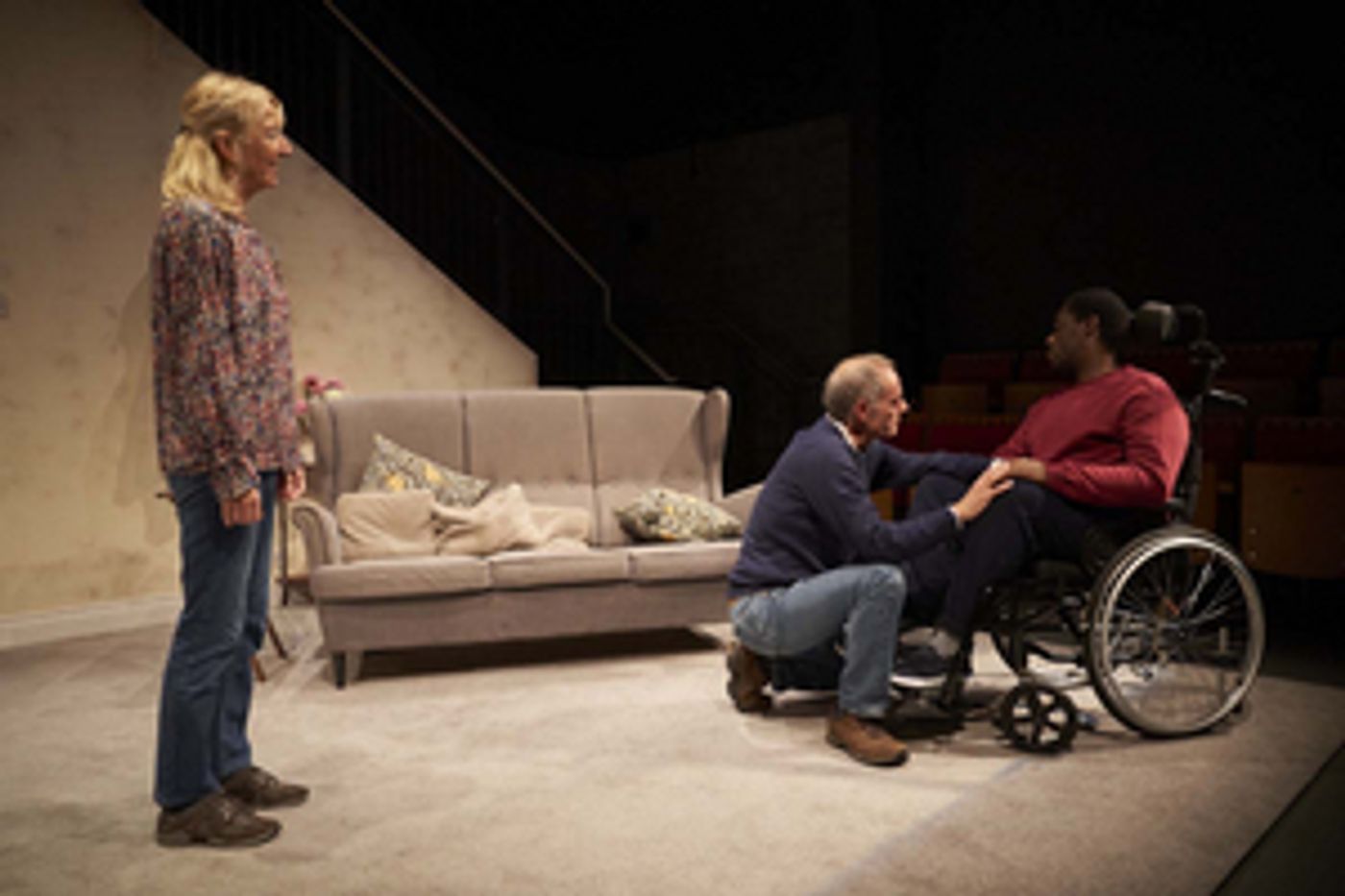Review: HAPPINESS, Cervantes Theatre
Spanish play explores issues relevant to the UK right now

 Every law student knows that hard cases make bad law, but, as Marilia Samper's play (beautifully translated from Spanish by Steven Capsuto) proves, they can make good drama.
Every law student knows that hard cases make bad law, but, as Marilia Samper's play (beautifully translated from Spanish by Steven Capsuto) proves, they can make good drama.
Julia is getting on a bit and can't take her disabled son in and out of her flat in a rundown estate on the outskirts of a left-behind town. She knows he loves the sun on his face, the wind in his hair and the sense of space he feels outside, but her neighbours just see a man in a chair who cannot communicate. Julia wants a ramp to allow her son to get in and out of the block, but the residents' association need to pay some of its cost - times are tough, they don't want to.
There's a lot going on in this 90 minutes all-through play. There are echoes of Francesca Martinez's splendid All Of Us (earlier this year at The National Theatre) in the bland but insurmountable obstacle of nine steps to a front door that is sufficient to destroy a disabled person's dignity. It explores a debate about what we should do collectively, disinterestedly, empathetically and what we should leave to individual responsibility. And there's an analysis of how friendships can be exploited, threatened and renewed. The political is very much personal in this world and all the better for it.
Reece Pantry plays a range of bolshie residents, steers us through the plot as our narrator and is also the disabled Eli for about half the play's running time. There is an argument for the role going to an actor confined to a chair themselves, but this is not the vehicle to explore that casting decision. Pantry is effective in bringing joy and pain to Eli's face without ever compromising the reason for Julia's passionate advocacy for the access ramp.
Howard Teale's Ray illustrates the dilemma that drives the drama, a good man pulled between what he knows he ought to do and the pragmatic need to keep the residents onside (not least for the protection of Julia and Eli). María de Lima's Vera goes on a journey from selfish mooching to an understanding that right and wrong are not really negotiable and comes to a personal decision that reflects the fact that people can, with time and information, change their views. Jeryl Burgess's Julia shows how tough it is for marginalised people to fight for their rights, even as they read them aloud from the legislation's text.
This is fine ensemble acting, benefiting from Paula Paz's pacy direction avoiding a slide into easy victimhood or glib resolutions which would render a subtle play obvious and diminish its impact.
With the cost of living crisis (or excess profits crisis, as your reviewer prefers) biting and tax rises to come, the issues raised by the play are timely. What is reasonable to expect to be funded through general taxation? How should regulations be enforced (the old dichotomy between the law-in-books and the law-in-action)? How can working class people make their voices heard in a faceless, bureaucratic, technology-driven world?
Such questions have always bubbled under the surface of societies but will come into ever-sharper focus for the next generation who must decide what kind of cities they want to live in and how they can resource them. Let's hope they make a better fist of it than have mine.
Happiness is at the Cervantes Theatre until 19 November
Photo Credit: Cervantes Theatre
Reader Reviews
Videos

